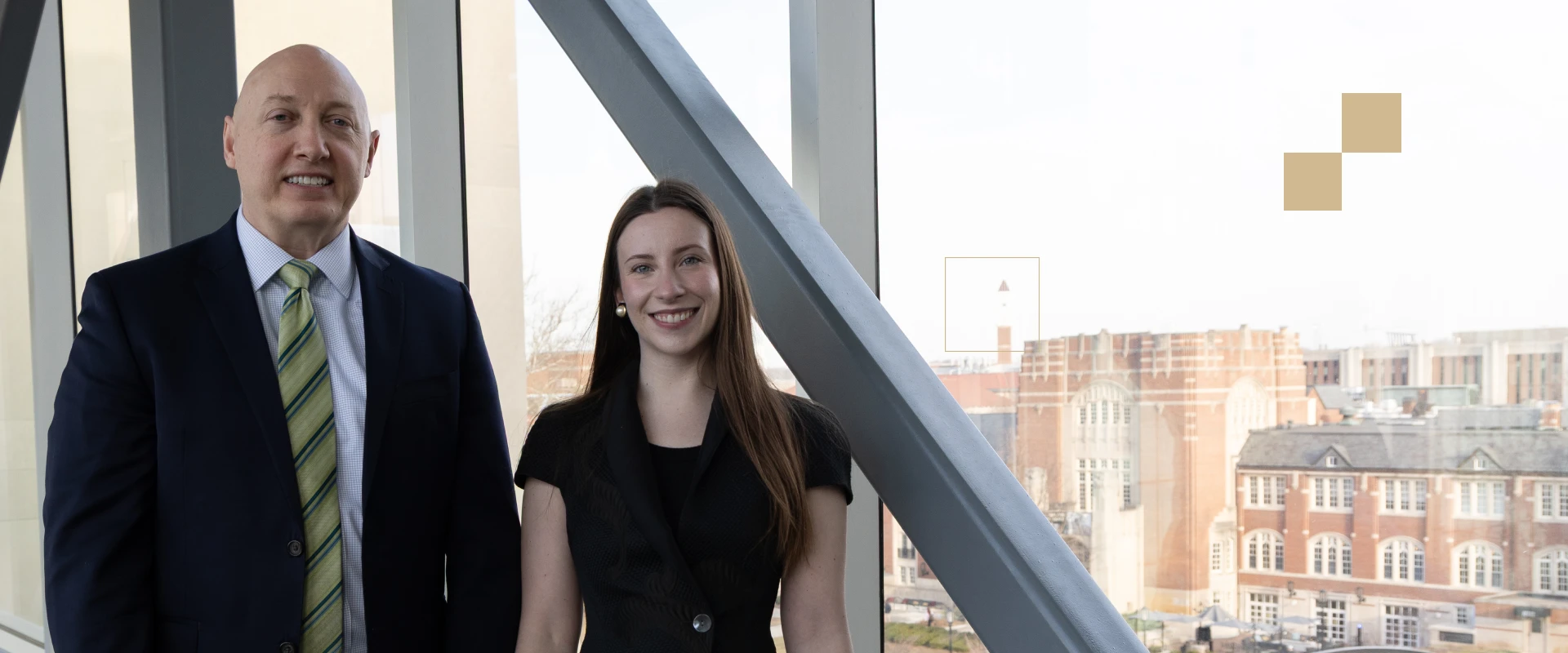
03-26-2025
A brochure in a filing cabinet helped shape Paul Holdeman’s future.
A native of Goshen, Indiana, Holdeman started his Purdue career in engineering. Within two semesters, he realized engineering was not his passion and found himself on academic probation, looking for a different career path. Going through cabinets filled with job information pamphlets, prior to the internet, he found one on the FBI.
“I always liked numbers, and the brochure mentioned the need for special agents with a background in accounting,” says Holdeman, who spoke to students in the Executive Forum on March 14. “I switched to accounting, and I got straight A’s from that point on.”
When Holdeman graduated in accounting in 1994, the FBI was in the midst of a hiring freeze. He went to work at Arthur Andersen, where he did fraud consulting and had several bosses who were former FBI agents. When the hiring freeze was lifted, he joined the FBI and reported to the FBI Academy in Quantico, Virginia, where all new special agent recruits learned their craft.
He took a valuable course in interviewing and advanced interrogation, which teamed well with his natural aptitude.
“My mother gave me a good instinct for detecting lies. I was always interested in human psychology, where you can detect a sense of what is normal and what is out of the ordinary,” says Holdeman, who now serves as managing director of PHACTOR, a consulting firm specializing in investigations and forensic accounting.
“It’s crucial to be able to elicit a confession from a guilty party. If you can do that, you have a higher likelihood of catching others who were involved in the illegal activity.”
Holdeman says that many times large misdeeds grow quickly from small issues. He points to Enron, which ironically used Arthur Andersen as its accounting firm, as an example.
“There was a quarter when the earnings per share came up a couple of pennies short of projections. That doesn’t sound like a lot to many people, but in the business world, it’s a big deal. They started to make adjustments to push expenses to the next quarter, hoping they could make up the difference. Before you knew it, things had snowballed into a multi-billion-dollar fraud,” he says.
Holdeman left students with several lessons learned over his career: